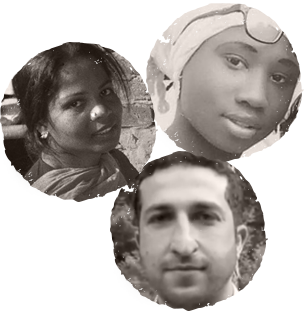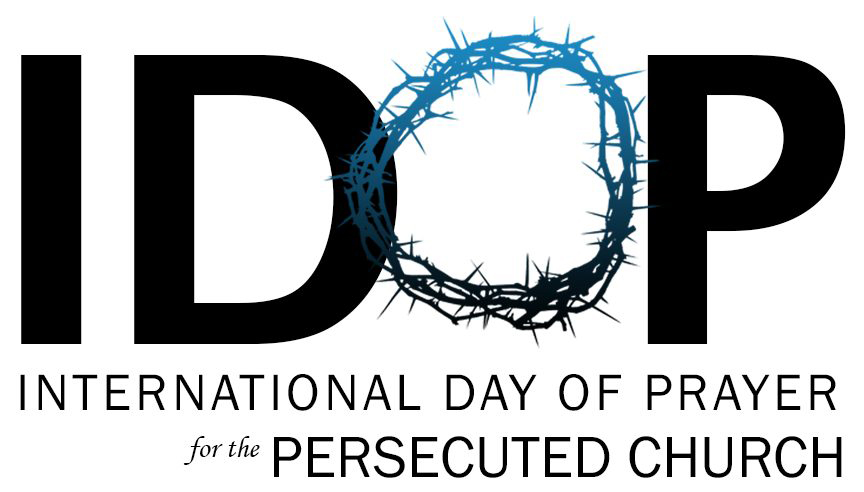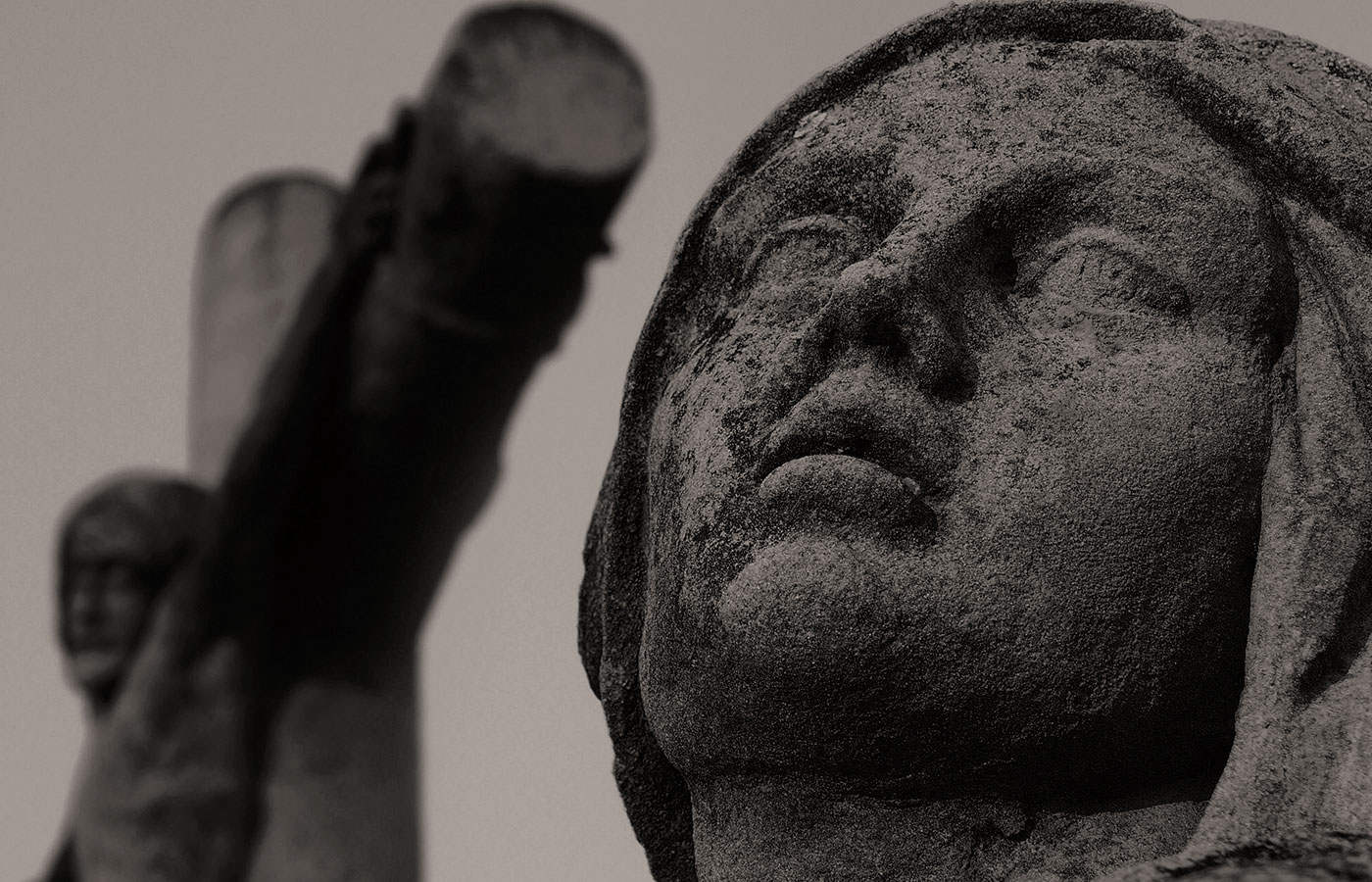Persecution of Christians is on the rise in many parts of the world.[1] Examples of the persecution that Christians face today include:

- suicide attacks on churches in Egypt, Nigeria, Iraq, and Pakistan[2]
- the renewed imprisonment of pastor Youcef Nadarkhani in Iran[3]
- the plight of Asia Bibi, finally acquitted of blasphemy in Pakistan but in grave danger
- the abduction of Leah Sharibu by Boko Haram in Nigeria
- the forced conversion of Christians in India[4]
- believers being thrown into concentration camps in North Korea
While Christians around the world are experiencing such brutal treatment, it is important and timely to ask how we as evangelicals should respond so that we can help to strengthen the worldwide church as part of the work of global mission.
Charles Spurgeon stated ‘All the persecutions of each member should be lifted up in prayer before God.’
 Prayer
Prayer
Prayer is the first and most important priority in what we do on behalf of persecuted brothers and sisters. Charles Spurgeon stated ‘All the persecutions of each member should be lifted up in prayer before God.’[5] Doing this is not an option. A good way to begin is to form a group that meets at a designated time to pray for the persecuted church. Churches should then encourage their members to join in praying for the suffering church.
As Franklin Graham asserts, it would be wrong to think that Christian persecution is distant from those who are in the West. He says that instead, ‘we have a responsibility to pray for those enduring suffering because they carry the name of Christ.’[6] This is exactly how the early church responded. When Peter was in prison, the church was earnestly praying to God for him (Acts 12:5).
 International Day of Prayer for the Persecuted Church
International Day of Prayer for the Persecuted Church

The ‘International Day of Prayer for the Persecuted Church’ is an excellent opportunity for congregations across the world to get together (in the month of November) and remember the suffering church in prayer. Congregations may choose to focus on praying for individuals, families, churches, or countries where Christians are facing hard situations. It is a practical way to show solidarity with persecuted brothers and sisters, and more churches need to promote this day among their congregations.
 Raising awareness
Raising awareness
Many Christians in the West are not aware of the state of Christian persecution around the world. Some are surprised to know that believers are being insulted, isolated, humiliated, discriminated, arrested, beaten, tortured, burned, or killed for their faith. Efforts need to be made to raise awareness of the persecution that Christians face. Churches might consider holding a seminar, workshop, or conference, preferably with a Q&A session, in which people acquainted with this topic could be invited to share. This would help them gain a deeper understanding of the persecuted church.
 Standing with persecuted Christians
Standing with persecuted Christians
Can we imagine our own families leaving us alone when we need them most? How would we feel? Some of us cannot even picture this happening to us. In writing to the church in Corinth, Paul writes: ‘If one part suffers, every part suffers with it’ (1 Corinthians 12:26). Paul is making the point that Christians ought to be watching out for each other. It is an expected behavior from those who claim to be the followers of Christ. It does not apply only to the local church but equally to the global body of Christ. Christians cannot simply ignore cruelties done to their brothers and sisters and not feel their pain.
Let us act like a family in Christ and stand up for the persecuted church.
They should show concern (Galatians 6:10) and raise their voices against every injustice done (Isaiah 1:17). The global body of Christ can be a huge encouragement to the suffering church: sending a simple letter of encouragement and appreciation, expressing our commitment to pray for them, and sharing how their faith has blessed us spiritually. Likewise, writing to embassies to enquire about the poor state of human rights in their countries and urging elected representatives to correct the conditions of inhumane mistreatment of Christians around the world can be helpful. Let us act like a family in Christ and stand up for the persecuted church.
 Practical help
Practical help
When a Christian individual, family, or locality is attacked and their houses are vandalised or set on fire, they run for their lives and literally become homeless. In the majority of cases, they have no other option than to stay with close relatives; and they are not generally in a position to rebuild their houses. Helping them to return to their homes is often not a priority for the government in question.
Furthermore, they usually cannot afford to buy a piece of land or a house in a different location. Therefore, despite their fear, sooner or later the only option for the majority is to return to their homes. This is when they are in need of practical help to be able to rebuild their homes. In partnership with local Christian ministries and non-governmental organizations, the global body of Christ can participate in the settlement process of persecuted Christians.
5000
Christian asylum seekers from Pakistan in Thailand
Their children have no access to eduction
Many are forced to live in detention centers
Those who manage to leave their homes to find refuge in another country often find themselves in a challenging situation. Those challenges include having nowhere permanent to live, an uncertain future, an unfamiliar culture and way of life, a foreign language, and years of waiting before receiving paperwork to settle in a new country. This is where Christians need to reach out in love and assist persecuted believers in every way possible. Many churches in the West are actively involved in ministries for refugees and immigrants.[7] It would be helpful for churches to consider establishing facilities, especially for those who have had to flee due to their Christian faith, have nowhere to live, and are stuck in the legal system.
For example, the state of Christian believers in Thailand who had to leave Pakistan due to persecution is of great concern.[8] There are over 5,000 Christian asylum seekers from Pakistan, many of whom are forced to live in detention centers in Bangkok. Their children have no access to education, they are threatened with being sent back if they do not pay bribes, and they have no access to health facilities.
The global body of Christ can be a channel of blessing to many who are living in similarly harsh circumstances:
- A short-term mission trip to places where Christians are faced with extreme persecution is worth considering.
- Praying with them, encouraging them and listening to their real-life stories can be very meaningful both to them and to members of the short-term mission team.
 Christian Counseling
Christian Counseling
In such circumstances, the challenge is not just the loss of possessions. Persecuted Christians suffer high levels of ongoing psychological and emotional stress, as well as spiritual challenges. Sadly, in many places where Christians are facing extreme persecution, Christian counseling is not in place to help afflicted believers deal with the trauma that they have endured.[9] Many churches on the ground are not aware of the need for and effectiveness of Christian counseling. The global body of Christ can help the suffering church by providing training in Christian counseling within its social and cultural context; it is crucial to keep the social and cultural aspects in mind if such training is to serve its purpose.
In 2013, several individuals lost their entire families in a twin suicide attack on a church in Pakistan—78 believers were martyred and 130 were injured.[10] Some church members studied Christian counseling so they could offer comfort to those going through this trauma for the rest of their lives. In places where there is a high risk of believers being the victims of such brutal attacks, or where persecution is on the rise, effective Christian counseling for and by local Christians needs to be in place.
One does not need to wait for a horrific attack to put plans together. The global body of Christ, in partnership with local leadership and ministries, should invest in Christian counseling training with the aim of having at least one group of trained counselors in every large town and city. Likewise, local seminaries and Bible colleges should consider offering courses in Christian counseling within their own social and cultural setting.
 Interfaith dialogue
Interfaith dialogue
In many places where believers are persecuted due to their faith, Christians live as a minority. In such places, seeking ways to maintain a healthy relationship with those of the majority faith and having productive interfaith dialogue are very important. However, while it is not easy for Christians to engage in dialogue with their persecutors, there seems to be no better way to gain more understanding of each other and to keep things from getting worse in the future.
The global body of Christ in their respective countries can help persecuted Christians by engaging in dialogue with other faith communities, especially with religious leaders who are originally from countries where Christians suffer. Many are unaware that these communities and religious leaders have influence over people in their countries of origin. For example, an open and clear statement by Egyptian Muslim leaders living in the West against the cruelties done to the Christian minority in Egypt is likely to be taken seriously by Muslims in Egypt and thus assist the suffering church there (or in other places such as Nigeria, Iraq, and Pakistan) to engage in productive interfaith dialogue with the majority faith.
The history of the church demonstrates that no cruelty or tyranny can ever stop the church of Jesus Christ from flourishing and growing in the Christian faith.
Conclusion
One’s heart cries out for all those who are persecuted for their faith in Jesus Christ. At the same time, it is encouraging to see that barbarous and cowardly acts cannot stop them from following Christ. They know from experience that, as Paul writes in Romans 8:35, there is nothing that can separate them from the love of God, not even suicide attacks. The history of the church demonstrates that no cruelty or tyranny can ever stop the church of Jesus Christ from flourishing and growing in the Christian faith.
In conclusion, the abovementioned practical steps may assist evangelicals in their work of strengthening the church and global mission. As followers of Christ, we need to be caring for persecuted Christians. By doing this, we too can experience spiritual blessings as one body of Christ. We can learn so much for our own discipleship from the persecuted church. Evangelicals should step forward in love, pray, and be a channel of blessing to brothers and sisters who witness for Christ in extreme conditions.
Endnotes
- Pew Research Center, http://www.pewresearch.org/fact-tank/2018/06/21/key-findings-on-the-global-rise-in-religious-restrictions/
- Editor’s Note: See article by Wafik Wahba, entitled, ‘Witnessing to the Gospel through Forgiveness’, in January 2018 issue of Lausanne Global Analysis https://lausanne.org/content/lga/2018-01/witnessing-gospel-forgiveness.
- Editor’s Note: See article by Thomas Harvey, entitled, ‘The State and Religious Persecution’, in March 2016 issue of Lausanne Global Analysis https://lausanne.org/content/lga/2016-03/state-and-religious-persecution.
- Editor’s Note: See article by Tehmina Arora, entitled, ‘Religious Identity, Nationalism, and Violence’, in May 2018 issue of Lausanne Global Analysis https://lausanne.org/content/lga/2018-05/religious-identity-nationalism-and-violence.
- Charles Spurgeon, ‘Prayer Meetings’, Spurgeon’s Sermons Vol 60 (Peabody, MA: Hendrickson Publishers, 2011), 1914. A sermon published on 27 August 1914. Delivered by C. H. Spurgeon at the Metropolitan Tabernacle, Newington on 30 August 1868.
- Final Declaration Presented at World Summit in Defense of Persecuted Christians, 13 May 2017. Available at: https://billygraham.org/press-release/final-declaration-presented-world-summit-defense-persecuted-christians/.
- Editor’s Note: See article by Cindy M. Wu, entitled, ‘We Too Were Once Strangers’, in May 2018 issue of Lausanne Global Analysis https://lausanne.org/content/lga/2018-05/we-too-were-once-strangers.
- British Broadcasting Corporation (2016), ‘The Christians held in Thailand after fleeing Pakistan’. Available at: https://www.bbc.com/news/magazine-35654804
- Editor’s Note: See article by Gladys Mwiti and Bradford M. Smith, entitled, ‘Turning the Church’s Attention to Mental Health’, in November 2018 issue of Lausanne Global Analysis https://lausanne.org/content/lga/turning-the-churchs-attention-to-mental-health.
- The New York Times (2013), ‘Scores Are Killed by Suicide Bomb Attack at Historic Church in Pakistan’. Available at: https://www.nytimes.com/2013/09/23/world/asia/pakistan-church-bombing.html

